#shōhei imamura
Explore tagged Tumblr posts
Text

The Pornographers (1966) // dir. Shōhei Imamura
392 notes
·
View notes
Text


Shōhei Imamura - Zegen (1987)
17 notes
·
View notes
Text
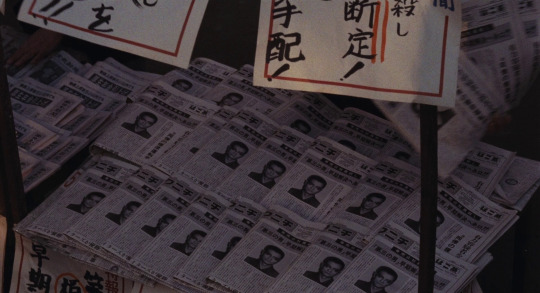





Shohei Imamura
- Vengeance Is Mine
1979
#Shohei Imamura#Vengeance Is Mine#Shōhei Imamura#今村昌平#復讐するは我にあり#Japanese Film#1979#Ken Ogata#緒形拳#wanted poster#wanted
71 notes
·
View notes
Text

2 notes
·
View notes
Text
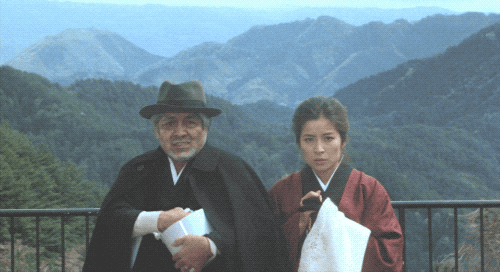
Vengeance Is Mine / 復讐するは我にあり (1979, dir. Shōhei Imamura)
19 notes
·
View notes
Text
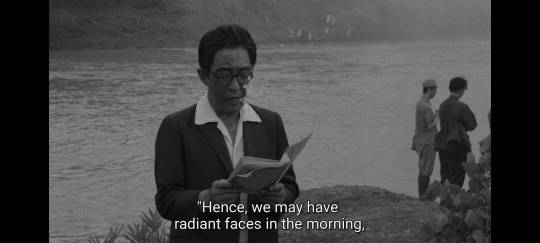





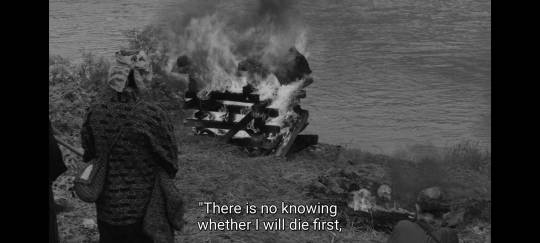
Black Rain (1989)
By Shōhei Imamura.
6 notes
·
View notes
Text

There are some staggering sequences in this - the burying alive, the hike and skeleton field - but its brutality was just too pragmatic, and whatever Stinky had going on was just too much altogether, for me to generally connect with it. Yet, I watched this after being forced to file my own taxes, and so I really understand Imamura when he said that the world of Narayama made more sense to him than the modern one.
#ballad of narayama#the ballad of narayama#film review#screen review#楢山節考#Narayama Bushikō#Shōhei Imamura
1 note
·
View note
Text
'Two new documentaries available to stream this week are riding the wave of anticipation for Christopher Nolan’s Oppenheimer, out in cinemas next Friday. Lest Nolan’s Cillian Murphy-starring biopic of atomic bomb creator J Robert Oppenheimer not serve the facts diligently enough, then Oppenheimer: The Real Story (from 17 July) and To End All War: Oppenheimer and the Atomic Bomb (Now TV) are on hand to fill in any gaps. They join a long line of documentaries on the subject and its adjacent concerns; the surprise is that it’s taken this long for Oppenheimer himself to be the protagonist of a major Hollywood drama.
But the legacy of the atom bomb, from its development to its impact to its all-round political aura, is a rich one, spanning everything from esoteric arthouse films to genre B-movies. For decades after the horrifying outcome of the Manhattan Project, through the long-lingering chill of the cold war, anxiety over nuclear warfare was the driving force behind any number of thrillers and war films. Comedies, sci-fi and even the odd film noir – see Robert Aldrich’s blistering Kiss Me Deadly (1955; Internet Archive), which culminates in a literally explosive allegory – got in on the paranoia.
First, however, the film industry attempted to tackle the subject more directly. Mixing earnest informational film-making with melodramatic fiction, the 1947 Hollywood film The Beginning or the End (Internet Archive) is a fascinating relic of its still-raw era. Dramatising the creation of the bomb and the circumstances building to Hiroshima, it has a dour sternness of tone that allows it to smuggle in some wild fabrication. Scenes of President Truman morally wrestling over whether or not to drop the bomb have the ring of patriotic face-saving. Indeed, there’s more history to be gleaned from the film’s blind spots than its inclusions.
Japan had its turn in 1953 with Hiroshima, another blend of fiction and documentary centred on child survivors in the aftermath of the blast. It’s undeniably wrenching, using a vast number of extras to effectively recreate their own harrowing experience, and while it was unsurprisingly branded “anti-American” in certain quarters, it doesn’t go easy on the Japanese military either.
In 1989, leading Japanese auteur Shōhei Imamura covered similar subject matter with a more distanced perspective in his soberly beautiful Black Rain (Arrow). A portrait of a family rebuilding in the wake of Hiroshima, it intersperses a quietly unfurling study of trauma with blunt first-hand accounts from victims. That same year, Hollywood inadvertently responded with Roland Joffé’s peculiarly misguided Manhattan Project drama Fat Man and Little Boy, previously Oppenheimer’s biggest screen showcase. Still, the scientist plays a supporting role to overseeing army officer Leslie Groves (played by Paul Newman), whose clipped, macho sense of duty spars with Oppenheimer’s cerebral detachment in a way that rather diminishes the bigger picture. There’s a reason you never hear of it today.
You certainly get a sharper, more telling view of the masculine egos sparking and aggravating nuclear warfare in Stanley Kubrick’s brilliantly deranged 1964 cold war farce Dr Strangelove, a film that managed to be both piquantly of its time and wildly ahead of it. It came amid a rush of more serious-minded Hollywood dramas on the same subject, including two released the same year. Sidney Lumet’s cold-sweat political thriller Fail Safe, in which an honourable US president and his advisers fret over an error that has sent a nuclear strike Russia’s way, is better remembered than John Frankenheimer’s Seven Days in May, in which a different imaginary Potus faces military mutiny in response to nuclear disarmament. Both are excellent.
European film-makers, meanwhile, may seem to be left out of the matter, but have contributed in surprising ways. Alain Resnais’s exquisite Hiroshima Mon Amour (1959; Amazon), a pointedly even-handed co-production with Japan, addresses Japanese PTSD and western guilt in the form of a desolate, mutually wounded romance. And the UK entered the conversation in the 1960s with The War Game, Peter Watkins’s stark, unnerving pseudo-documentary vision of nuclear war on home turf: a fiction evocative enough to fool the Oscars into giving it a best documentary prize, though a spooked BBC wouldn’t air it for 20 years. We’ll see next week if the atom bomb on screen can still cause that kind of stir...'
#Christopher Nolan#Oppenheimer#Cillian Murphy#Hiroshima Mon Amour#Alain Resnais#The War Game#Peter Watkins#Stanley Kubrick#Dr. Strangelove#John Frankenheimer#Seven Days in May#Sidney Lumet#Fail Safe#Shōhei Imamura#Fat Man and Little Boy#Roland Joffé#Black Rain#The Beginning or The End#Oppenheimer: The Real Story#To End All War: Oppenheimer and the Atomic Bomb#Kiss Me Deadly#Robert Aldrich
1 note
·
View note
Photo
Shohei Imamura
- Intentions of Murder
1964

#Shohei Imamura#今村昌平#Intentions of Murder#赤い殺意#Unholy Desire#Shōhei Imamura#camera#japanese film#1964
170 notes
·
View notes
Text


#Narayama bushikō#the ballad of Narayama#1983#80s#cannes#palme d'or#movie#art#cinema#Japan#japenese# Shōhei Imamura#winter
1 note
·
View note
Text

The Pornographers (1966) // dir. Shōhei Imamura
92 notes
·
View notes
Text

Vengeance Is Mine (Japanese: 復讐するは我にあ, Hepburn: Fukushū Suru wa Ware ni Ari) is a 1979 Japanese film directed by Shōhei Imamura, based on the book of the same name by Ryūzō Saki. It depicts the true story of serial killer Akira Nishiguchi, changing the protagonist's name to Iwao Enokizu (Ken Ogata).
•
•

Vengeance Is Mine (1979) film by Shōhei Imamura
The Criterion Collection 2007 DVD release of Vengeance Is Mine.
•
•

Vengeance Is Mine: Civilization and Its Discontents
By Michael Atkinson
The Criterion Collection essay - August 26, 2014
YouTube video >> Vengeance Is Mine - Original Trailer [Japan 1979 / 3mins.+02secs.]:
youtube
The original trailer in high definition with english subs of Vengeance Is Mine directed by Shôhei Imamura and starring Ken Ogata, Rentarô Mikuni, Chôchô Miyako and Mitsuko Baishô.
#Cinema#Japanese cinema#Filmmaker Shôhei Imamura#Vengeance Is Mine (1979) film by Shōhei Imamura#Actor Ken Ogata#Youtube
0 notes
Text

Shōhei Imamura - Zegen (1987)
13 notes
·
View notes
Text

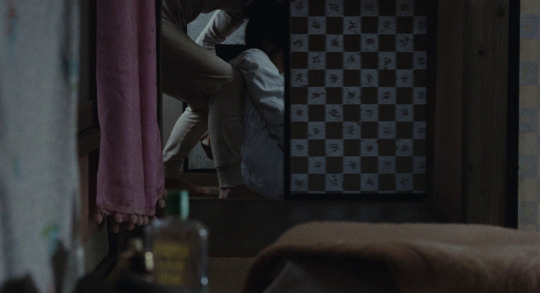
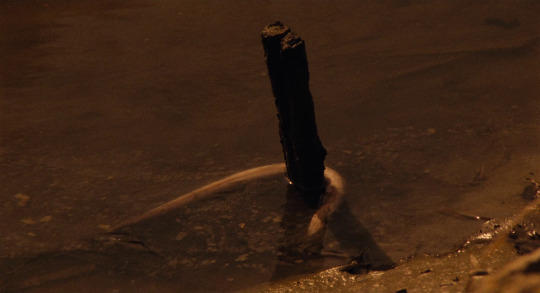

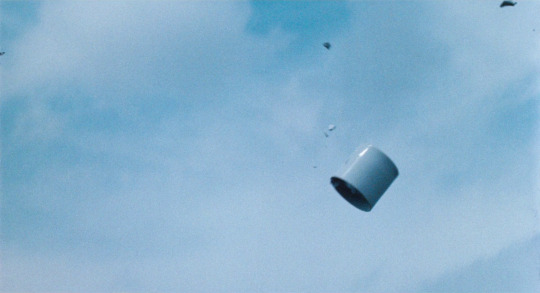
Shohei Imamura
- Vengeance Is Mine
1979
#Shohei Imamura#Vengeance Is Mine#Shōhei Imamura#今村昌平#復讐するは我にあり#Japanese Film#1979#Rentarō Mikuni#Rentaro Mikuni#三國連太郎
47 notes
·
View notes
Text

episode one hundred forty two - Shōhei Imamura tapecase radio
2 notes
·
View notes
Text





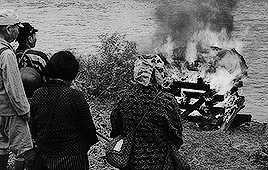




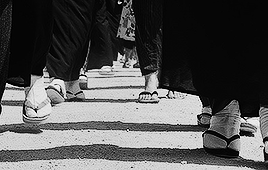
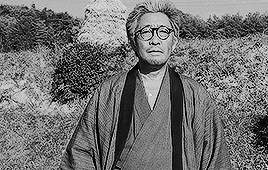

"Humans are such obstinate creatures. We're strangling our own throats. An unjust peace is better than a just war. Why can't they understand that?" BLACK RAIN / KUROI AME 1989 | dir. Shōhei Imamura

#black rain#kuroi ame#1980s#japan#by kraina#filmedit#worldcinemaedit#jdramaedit#perioddramaedit#weloveperioddrama#onlyperioddramas#cinemaspam#filmtag#filmgifs#userfilm#userrobin#usertennant#userteri#userhugh#userdanahscott#usersunny#underbetelgeuse#userraffa#tuserhan#usernatty#userpayton#tusermalina#tusertha#usergiu#userhallie
266 notes
·
View notes